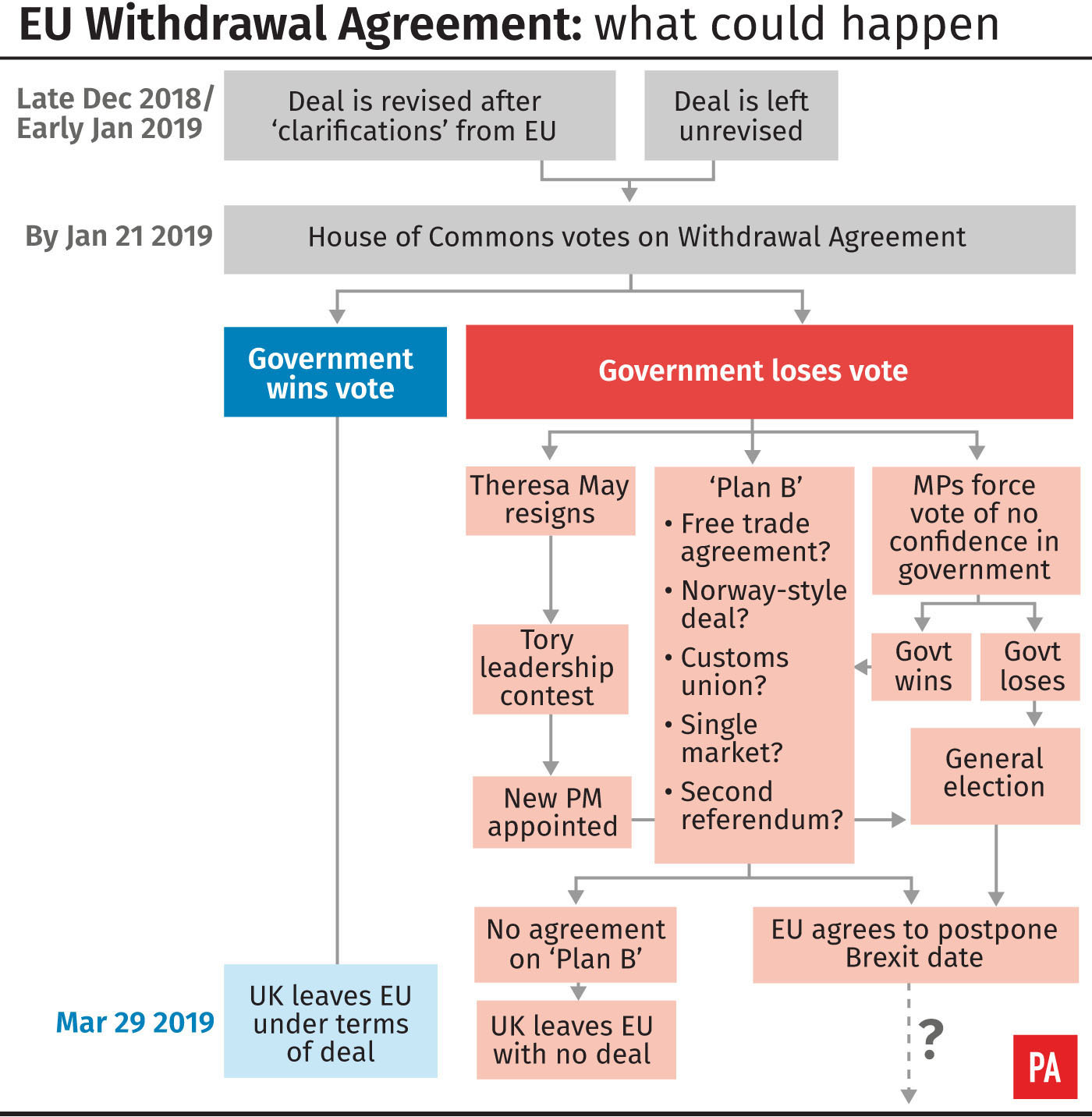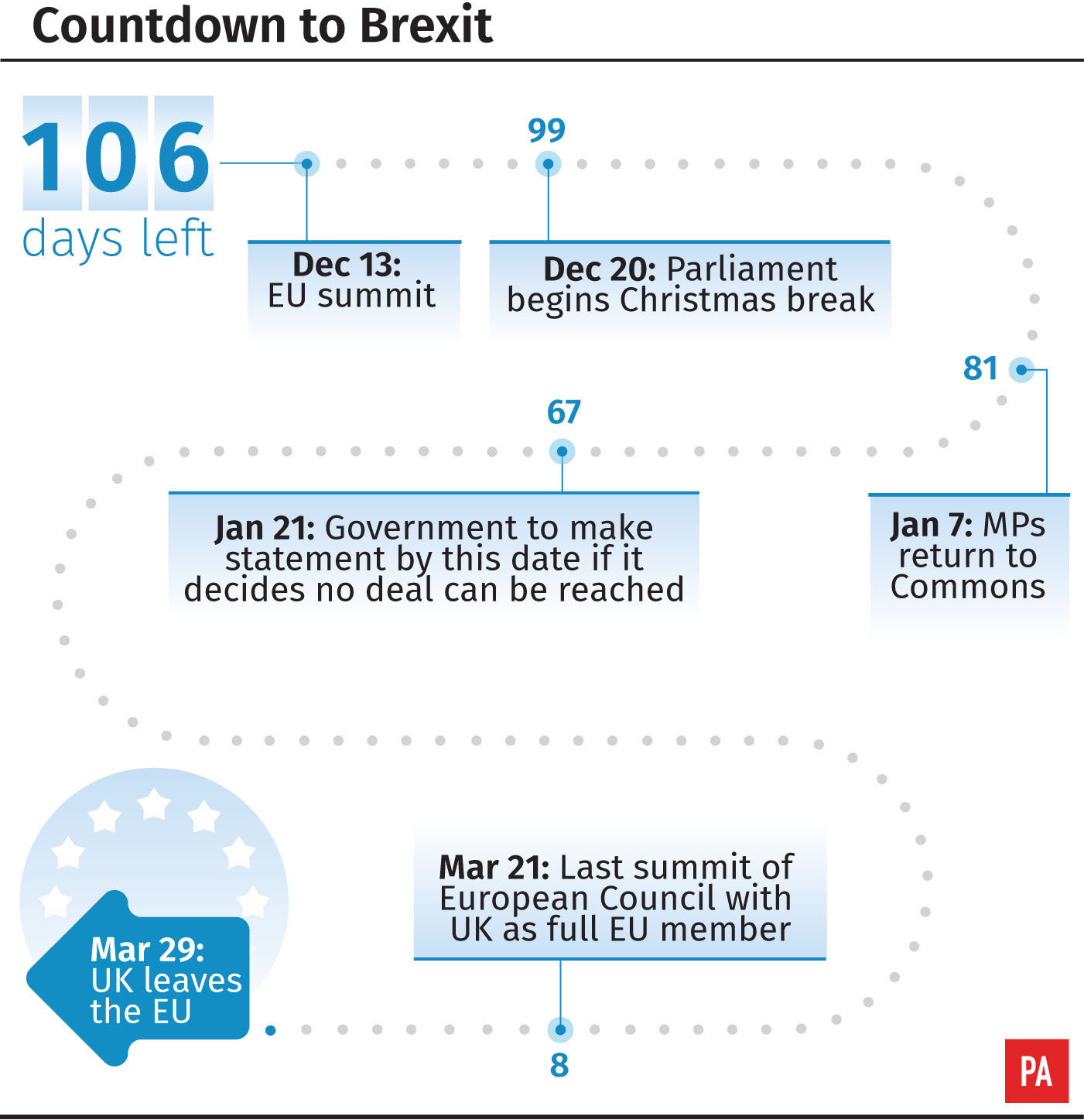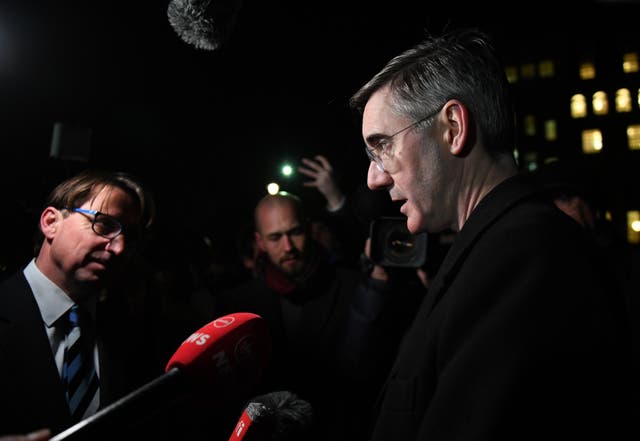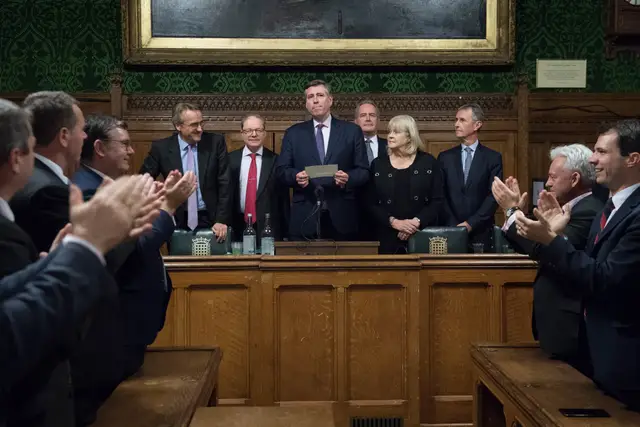Theresa May returns to Brussels after surviving bruising Tory confidence vote
The Prime Minister will seek fresh concessions from the EU after winning a confidence vote by 200-117.

Theresa May heads to Brussels on Thursday seeking fresh concessions for her Brexit deal after emerging from a confidence vote by Tory MPs bloodied and bruised but victorious.
The Prime Minister will address EU leaders at the two-day European Council after seeing off rebels who attempted to remove her from the party leadership, winning by 200 votes to 117 in a secret ballot.
She will hold one-on-one talks with Irish Taoiseach Leo Varadkar before the summit opens, after cancelling a planned trip to Dublin on Wednesday in order to fight for her leadership.
After a day of drama in Westminster, the Prime Minister was still faced with the dilemma of how to convince the EU to tweak the Withdrawal Agreement so that it will be passed by Parliament.
Speaking in Downing Street moments after the result was announced, Mrs May acknowledged that a “significant” number of her MPs had voted against her and said: “I have listened to what they said.”

She pledged to seek “legal and political assurances” on the Brexit backstop to allay MPs’ concerns about her Withdrawal Agreement when she attends a European Council summit in Brussels on Thursday.
And she said she and her administration had a “renewed mission”, saying: “Following this ballot, we now need to get on with the job of delivering Brexit for the British people and building a better future for this country.”
She said this must involve “politicians of all sides coming together and acting in the national interest”.

But she had earlier sowed the seeds for her eventual departure by telling Tory MPs at a meeting of the backbench 1922 committee that she would not lead the party into the next general election, expected in 2022.
According to MPs present at the meeting, she also promised to find a “legally binding solution” to ensuring that the UK does not get permanently trapped in a backstop arrangement to keep the Irish border open after Brexit.
The scale of this task was highlighted by Irish premier Leo Varadkar and European Commission president Jean-Claude Juncker, who insisted in a phone call as MPs voted that the UK’s Withdrawal Agreement “cannot be reopened or contradicted”.
DUP leader Arlene Foster, who met Mrs May shortly before the ballot, insisted that “tinkering around the edges” of the agreement would not be enough to win her party’s support for the deal.
Mrs Foster, whose 10 MPs prop up the minority Conservative administration, said she told the PM that “we were not seeking assurances or promises, we wanted fundamental legal text changes”.

Immediately after the vote result was announced by 1922 chairman Sir Graham Brady, she faced calls to resign from Brexit-backing MPs including Jacob Rees-Mogg, who said that she had lost the confidence of more than one-third of her MPs and a majority of backbenchers.
Mr Rees-Mogg told the Press Association Mrs May should resign “as soon as the Queen has a moment in her diary to see her”.
The hardline European Research Group (ERG) vowed to continue opposing Mrs May’s “disastrous” Brexit deal, with a spokesman warning: “The parliamentary arithmetic remains unchanged.”
But other Brexiteers said they would end their efforts to unseat the Tory leader.

Crispin Blunt said: “The leadership question is now behind us for a year and we must get behind Theresa May in delivering Brexit.”
It was Mrs May’s decision to pull a vote on her deal in the face of what she acknowledged would have been a heavy defeat earlier this week which sparked a new wave of letters of no confidence from Tories, triggering the challenge to her position.
Mrs May’s victory in the confidence vote means that another challenge cannot be mounted against her position as Tory leader for a year.
But she still faces the danger of a no-confidence motion in the House of Commons, which could bring her Government down if backed by more than half of all MPs.
Labour leader Jeremy Corbyn said the “dismal” deal should be put before MPs next week.
Shadow chancellor John McDonnell hinted that Labour could call the motion next week if Mrs May does not get changes to the Withdrawal Agreement that it wants, telling ITV’s Peston: “We will just have to judge what she comes back with on Sunday night, Monday morning, see what the statement is in the House of Commons on Monday and take a proper judgment then.”





